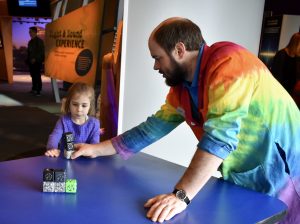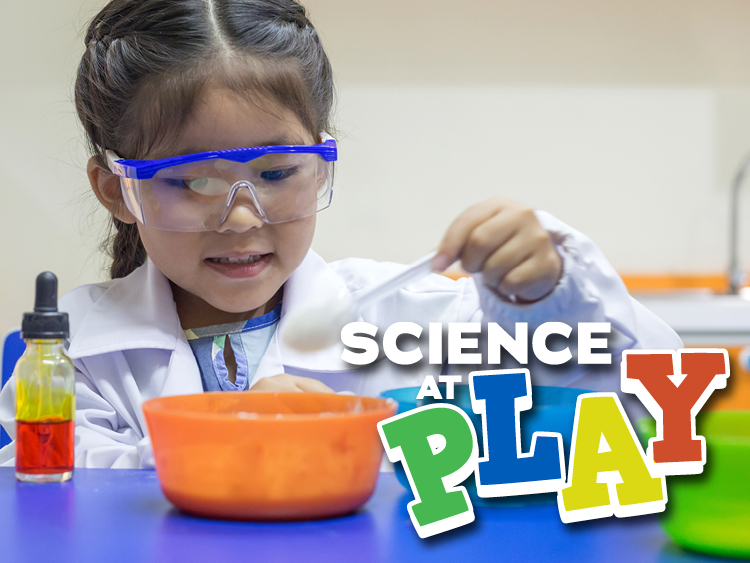The world around us is full of amazing colors. Whether your favorite is red, blue, green, orange, or somewhere in between, you can always find something that suits your taste. But did you know that light plays a big role in the colors that we see?
In this video, watch us explore how changing the color of a light can change what color we think an object is. Check it out, and you can try it at home too.
Materials to Collect
- Color changing light or colorful LED Strip
- Colorful objects
- A dark room, or blanket fort
- Cellophane, markers, and flashlights
Build/Make Your Own/Try it Out
- Find some color changing lights, or make your own by coloring in cellophane with a marker and placing it over the end of a flashlight.
- Gather some colorful objects and turn off all of the lights in a room or build a blanket fort that you can crawl into and have it be nice and dark. To work well, it will need to be very dark, so you might want to try this out at night.
- Shine different color lights onto objects and watch as the colors change. Try it out with every color that you can.
What is the Science?
If you have ever seen white light shine through a prism or looked at a rainbow in the sky, you have observed that white light contains all the colors of the rainbow.
When we look at an object and see its color, we are seeing all of the light that reflects off of that object. Red objects reflect red light, green objects reflect green light, and so on. But what happens to the rest of the colors that hit that object? They get absorbed! If you have a red object, all the orange, yellow, green, blue, and violet light gets absorbed into that object. If you have a black object, almost all of the light gets absorbed by that object.
Since we are talking about objects and how they reflect light, it might help to think of these objects as color mirrors. A blue object acts like a “blue mirror.” We only see what is being reflected back to us, in this case it’s blue! So what happens if you shine only red light onto a blue object? All of that red light gets absorbed and the blue object will seem to be dark, almost black. If you now shine a blue light onto that blue object all the blue can reflect off of that “blue mirror” and you will see the colors again!
Ask Your Young Scientists
As you are changing the colors of light on your objects, ask your scientist what they notice about all the colors. What do they observe if they focus on one object/color at a time? What happens when you shine more than one color light at a time? What do you notice when then light matches the color of the object. What do you notice when the light doesn’t match the object’s color?
More to Explore
Try a fun game:
- Grab some different colored markers or paints and try to draw a picture while you only have one color of light shining on your artwork and tools. Does it look like you thought it would when you change the light back to normal?
- Grab a bunch of colorful pieces, like Lego or candy. Can you sort them into piles by color if you only have red lights on? Is it easier or harder with a different color?
We want to see what you try at home. Share your creation with us by tagging @CTScienceCenter and using the #ScienceAtPlay on social media for a chance to be featured.


Andrew Fotta is a STEM educator at the Connecticut Science Center. He has currently holds a CT teaching certification for grades K-6, and has spent time in the classroom in nearly all grades, and taught middle school science. In addition to teaching classes for the Science Center, Andrew is also part of a team of educators currently creating new programs aligned with the new Next Generation Science Standards for grades PreK-9. Andrew is an avid photographer, who enjoys blending science and art in his work.


